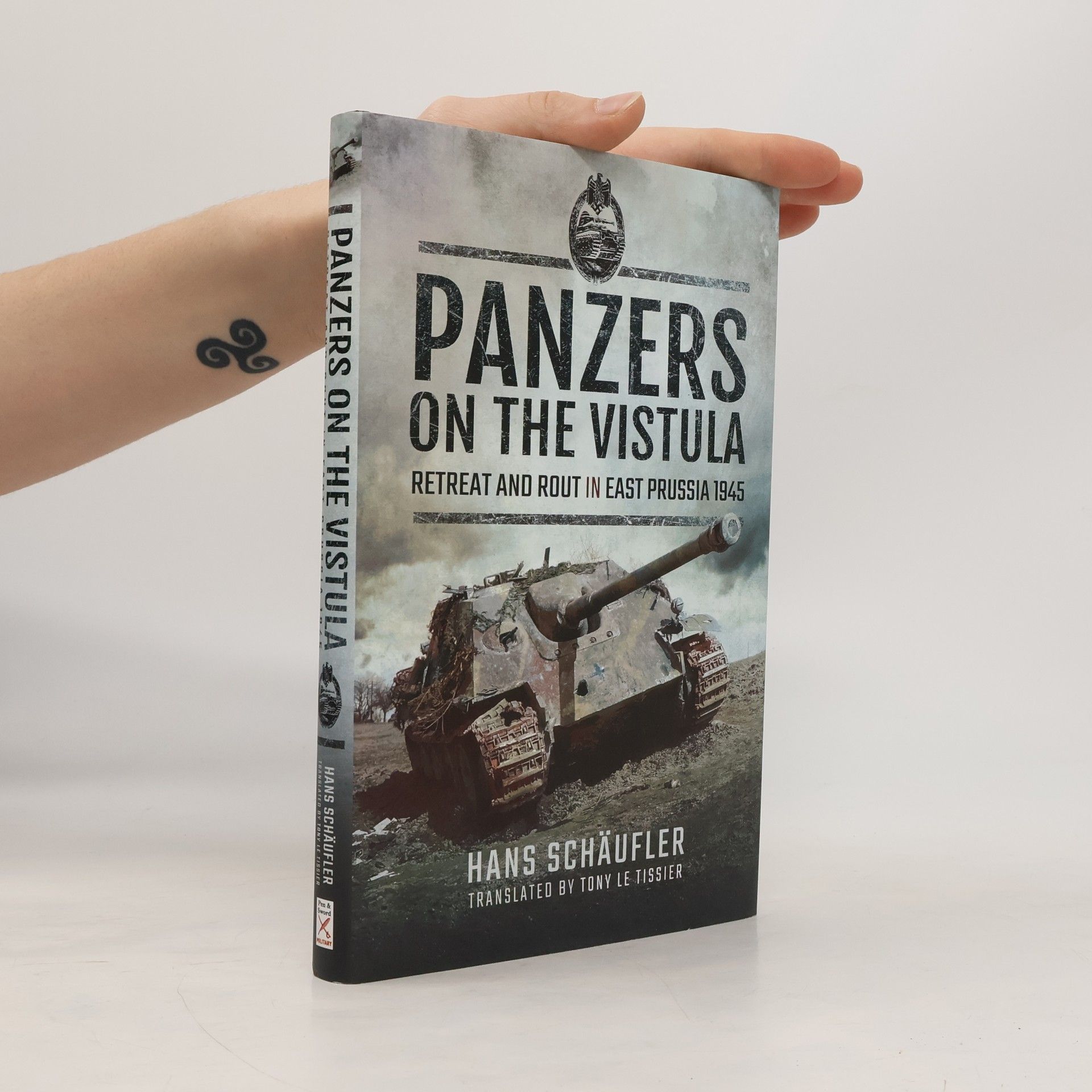Publikace Tonyho Le Tissiera Bitva o Říšský sněm je třetí autorovou knihou, v níž se vrací k bojům o hlavní město nacistického Německa na konci války v roce 1945 – kniha čtenáři představí dosud neznámé materiály z odtajněných sovětských i německých archivů, dozví se mnohé o vzájemné řevnivosti dvou ruských maršálů (Žukova a Koněva), kteří si chtějí dobytí Berlína (a symbolicky tedy porážku nacistického Německa) připsat na svůj účet, i o odvaze obyčejných vojáků, kteří na samém konci války neváhali položit život v boji. Kniha je určena všem zájemcům přípravy, průběh a důsledky poslední velké bitvy druhé světové války, bitvy o Berlín, potažmo jejího vyvrcholení, bitvy o berlínský Říšský sněm.
Tony Le Tissier Knihy







Farewell to Spandau
- 180 stránek
- 7 hodin čtení
The last British Governor of Spandau Allied Prison puts the record straight about the final years of Rudolf Hess' life, and his ultimate suicide while in Allied custody. Lt. Col. Le Tissier authentically counters the many allegations, which have abounded, that the prisoner was an imposter, that he was kept in isolation, and even that he was murdered. The book also gives some fascinating insights into life in Berlin as an island of democracy in a sea of Communism.
The frenzied last day so the Third Reich from the perspective of young German soldiers
Hans Schaufler fought as the commander of a Jagdpanther tank destroyer in rearguard actions against the Red Army in East Prussia in 1945. Then, as an infantryman, he took part in the doomed defence of Danzig and made a daring escape across the Baltic in a small boat. This is his story, and it is the story of tens of thousands of soldiers and civilians who were caught up in the chaos and tragedy of the German retreat. His eyewitness account is one of the most revealing records we have of the experience of the collapse of the Third Reich in the east. As well as giving a vivid insight into the German army's tactics as they fell back before the Soviet advance, he describes the appalling conditions and the fear and panic that gripped the city. Acute shortages of men, equipment, ammunition and fuel crippled the defence, but extraordinary resilience, heroism and ingenuity still motivated the soldiers who were fighting for a lost cause and facing certain defeat.
A vivid depiction of the extraordinary circumstances of the Third Reich's final days
Operation "Berlin," the Soviet offensive launched on 16 April, 1945, by Marshals Zhukov and Koniev, isolated the German Ninth Army and tens of thousands of refugees in the Spreewald "pocket," south-east of Berlin. Stalin ordered its encirclement and destruction and his subordinates, eager to win the race to the Reichstag, pushed General Busse's 9th Army into a tiny area east of the village of Halbe. To escape the Spreewald pocket, the remnants of 9th Army had to pass through Halbe, where barricades constructed by both sides formed formidable obstacles and the converging Soviet forces subjected the area to heavy artillery fire. By the time 9th Army eventually escaped the Soviet pincers, it had suffered 40,000 killed and 60,000 taken prisoner. Teenaged refugees recount their experiences alongside Wehrmacht and Waffen-SS veterans attempting to maintain military discipline amid the chaos and carnage of headlong retreat. While army commanders strive to extricate their decimated units, demoralized soldiers change into civilian clothing and take to the woods. Relating the story day by day, Tony Le Tissier shows the impact of total war upon soldier and civilian alike, illuminating the unfolding of great and terrible events with the recollections of participants.
We Stormed the Reichstag
- 160 stránek
- 6 hodin čtení
Set against the backdrop of World War II, the narrative follows Vassili Subbotin's transformation from an ordinary soldier during the Red Army's retreat in 1941 to a war correspondent witnessing the intense battles in Berlin in 1945. The story captures the harrowing experiences of war, the brutality of the final confrontations, and the pivotal moments that led to Germany's defeat, highlighting the personal and historical significance of Subbotin's journey through these tumultuous years.
Marshal Zhukov at the Oder
- 452 stránek
- 16 hodin čtení
The story of the last major land battle in Europe that sealed the fate of Berlin - and the Third Reich.
A critically-acclaimed impartial account of the twilight of the Third Reich
The unexpected arrival of Soviet troops at the end of January 1945 at the ancient fortress and garrison town of Kustrin came as a tremendous shock to the German High Command-the Soviets were now only 50 miles from Berlin itself. The Red Army needed the vital road and rail bridges passing through Kustrin for their forthcoming assault on the capital, but flooding and their own high command's strategic blunders resulted in a sixty-day siege by two Soviet armies which totally destroyed the town. The delay in the Soviet advance also gave the Germans time to consolidate the defenses shielding Berlin west of the Oder River. Despite Hitler's orders to fight on to the last bullet, the Kustrin garrison commander and 1,000 of the defenders managed a dramatic breakout to the German lines.The protracted siege had an appalling human cost - about 5,000 Germans were killed, 9,000 wounded and 6,000 captured, and the Russians lost 5,000 killed and 15,000 wounded. Tony Le Tissier, in this graphic and painstakingly researched account, has recorded events in extraordinary detail, using the vivid eyewitness testimony of survivors to bring the story of the siege to life.